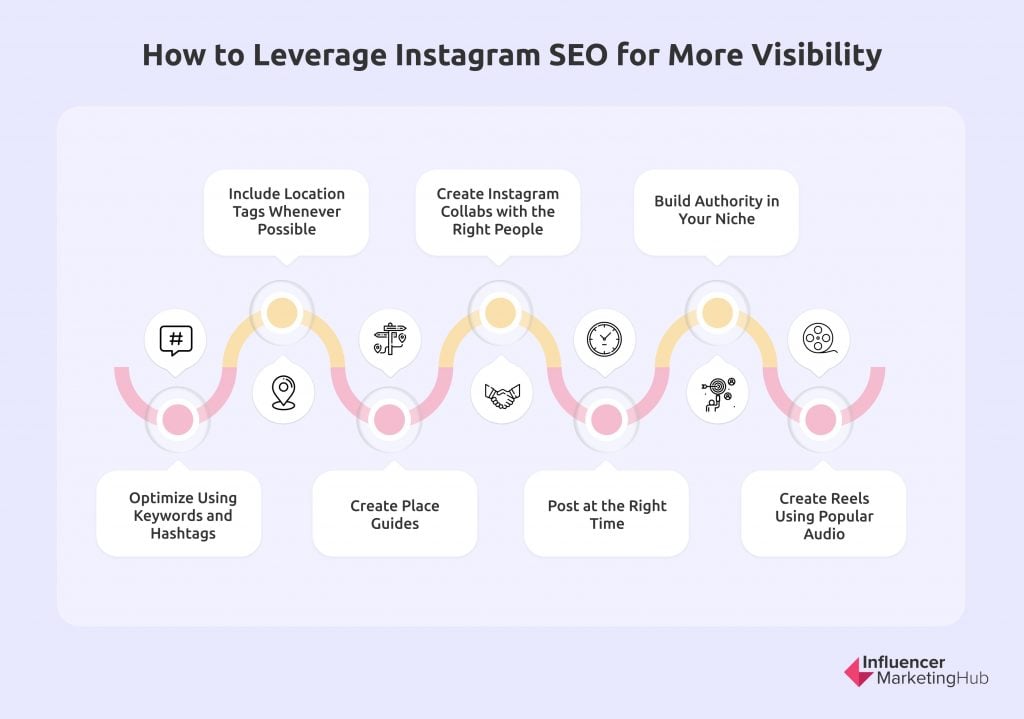Unlock the power of secondary keywords and skyrocket your SEO strategy with these expert tips and tricks for success.

Image courtesy of via DALL-E 3
Table of Contents
- Introduction to Secondary Keywords
- Finding the Right Secondary Keywords
- Incorporating Secondary Keywords in Your Blog
- Common Mistakes to Avoid
- How Secondary Keywords Boost SEO
- Using LSI Keywords as Secondary Keywords
- Advanced Techniques for Secondary Keywords
- Summary and Key Takeaways
- Frequently Asked Questions (FAQs)
Introduction to Secondary Keywords
In this section, we will delve into the world of secondary keywords and their significance in the realm of SEO and blog writing. Understanding how secondary keywords function and why they are crucial can greatly impact the visibility and success of your blog.
What Are Secondary Keywords?
Secondary keywords are additional terms or phrases that are related to your primary keywords but provide a more nuanced and specific focus. While primary keywords are the main topics or themes of your content, secondary keywords help to further refine and target your audience’s search intent.
Why Secondary Keywords Are Important
Secondary keywords play a vital role in optimizing your blog for search engines and attracting a larger audience. By strategically incorporating secondary keywords into your content, you can increase the chances of your blog being discovered by users searching for related topics. This, in turn, can lead to higher visibility and engagement for your blog.
Finding the Right Secondary Keywords
When it comes to enhancing your blog’s visibility and reaching a larger audience, finding the right secondary keywords is crucial. In this section, we will explore how you can effectively discover secondary keywords using various tools and methods.
Using Keyword Research Tools
Keyword research tools are valuable resources that can help you identify relevant secondary keywords for your blog. Tools like Google Keyword Planner, Ahrefs, and SEMrush can provide insights into search volume, competition, and related keywords. By utilizing these tools, you can uncover valuable secondary keywords that align with your blog’s content and target audience.
Exploring Google Trends
Google Trends is another powerful tool that can help you discover popular topics and keywords that are trending in your niche. By exploring the latest search trends, you can identify relevant secondary keywords that are currently in demand. Additionally, Google Trends allows you to compare the popularity of different keywords over time, helping you stay ahead of the curve and optimize your blog content for maximum visibility.
Incorporating Secondary Keywords in Your Blog
When it comes to optimizing your blog post with secondary keywords, one effective strategy is to incorporate these keywords into your headings and subheadings. Headings provide a clear structure for your content, making it easier for readers to navigate through your blog post. By including secondary keywords in your headings, you can help search engines understand what your content is about and improve your chances of ranking higher in search results.

Image courtesy of influencermarketinghub.com via Google Images
Secondary Keywords in Body Text
It’s essential to seamlessly integrate secondary keywords into the body of your blog post while maintaining a natural and engaging writing style. Sprinkling secondary keywords throughout your content can signal to search engines the relevance of your blog post to a particular topic or theme. However, be cautious not to overuse these keywords, as keyword stuffing can harm your SEO efforts and turn off your readers.
Common Mistakes to Avoid
One common mistake that bloggers make when using secondary keywords is keyword stuffing. This occurs when you excessively repeat your secondary keywords throughout your content in an attempt to manipulate search engine rankings. Not only does keyword stuffing make your blog post sound unnatural and awkward to read, but it can also harm your SEO efforts. Search engines like Google penalize websites that engage in keyword stuffing, so it’s essential to use secondary keywords in a balanced and organic way.
Ignoring User Experience
Another mistake to avoid when incorporating secondary keywords is ignoring user experience. While optimizing your blog for SEO is crucial, it shouldn’t come at the expense of your readers’ experience. If your content is overloaded with secondary keywords and lacks valuable information or engaging writing, visitors are likely to bounce off your site quickly. Remember, the ultimate goal of your blog is to provide value to your audience, so always prioritize creating high-quality, user-friendly content over keyword placement.
How Secondary Keywords Boost SEO
Secondary keywords play a vital role in boosting the search engine rankings of your blog posts. When you include relevant secondary keywords in your content, search engines like Google can better understand the topic of your post. This, in turn, helps your blog appear higher in search results when users enter related queries. By strategically incorporating secondary keywords throughout your content, you can improve the visibility of your blog and attract more organic traffic.

Image courtesy of www.peppercontent.io via Google Images
Increasing Blog Traffic
One of the key benefits of utilizing secondary keywords is the potential to increase blog traffic. When you target specific secondary keywords that are frequently searched by your target audience, you can attract more visitors to your blog. These secondary keywords help your blog rank higher in search engine results pages, making it easier for users to discover your content. As a result, incorporating secondary keywords effectively can lead to a significant boost in overall blog traffic and reader engagement.
Using LSI Keywords as Secondary Keywords
When it comes to enhancing your blog’s visibility and attracting more readers, leveraging Latent Semantic Indexing (LSI) keywords as secondary keywords can be a game-changer. Let’s dive into understanding LSI keywords and how to effectively incorporate them into your content.
Understanding LSI Keywords
LSI keywords are words or phrases that are semantically related to your main topic. These keywords help search engines understand the context and relevance of your content, making it easier for them to rank your blog in search results. For example, if your main keyword is “healthy recipes,” LSI keywords could include terms like “nutritious meals,” “cooking tips,” or “balanced diet.”
Benefits of LSI Keywords
Using LSI keywords in your blog posts offers several advantages. Firstly, it improves the overall context and depth of your content, making it more valuable to readers. Search engines appreciate this contextual relevance, which can positively impact your SEO rankings. Additionally, incorporating LSI keywords can help you avoid keyword stuffing, a practice frowned upon by search engines.
Advanced Techniques for Secondary Keywords
One advanced technique for effectively using secondary keywords is conducting competitive analysis. This involves analyzing how your competitors are utilizing secondary keywords in their content. By understanding their strategies and keyword choices, you can gain valuable insights into what works in your niche.

Image courtesy of www.linkedin.com via Google Images
Identifying Content Gaps
Another advanced strategy is identifying content gaps where you can incorporate unique secondary keywords. By conducting thorough research and analysis, you can pinpoint areas in your industry or topic that are underserved. This presents an opportunity for you to create valuable content that addresses these gaps and integrates relevant secondary keywords naturally.
By implementing these advanced techniques, you can enhance the effectiveness of your secondary keyword strategy and improve the visibility and ranking of your blog.
Summary and Key Takeaways
Throughout this blog post, we have delved into the world of secondary keywords and how they can significantly impact the performance of your blog content. Let’s recap some of the main points discussed and extract key takeaways to help you leverage secondary keywords effectively:
Understanding the Importance of Secondary Keywords
Secondary keywords play a crucial role in enhancing your blog’s visibility and attracting more readers. While primary keywords are essential, incorporating secondary keywords strategically can help you reach a wider audience and improve your blog’s SEO.
Optimizing Your Content with Secondary Keywords
When incorporating secondary keywords into your blog posts, remember to use them in headings and subheadings to improve search engine visibility. Additionally, ensure that these keywords are seamlessly integrated into the body text to enhance the overall relevance and quality of your content.
Avoiding Common Mistakes
One common mistake to avoid is keyword stuffing, as it can negatively impact your blog’s SEO performance. It’s also essential to prioritize user experience and balance SEO practices with creating valuable content that resonates with your audience.
The SEO Benefits of Secondary Keywords
Secondary keywords can help improve your search engine rankings and increase traffic to your blog. By strategically incorporating these keywords into your content, you can enhance your blog’s visibility and attract more visitors interested in your niche.
Leveraging LSI Keywords
LSI keywords, a type of secondary keyword, offer contextual relevance and can further enhance your blog’s SEO performance. Understanding and utilizing LSI keywords effectively can help you create content that is both informative and optimized for search engines.
Advanced Strategies for Success
By conducting competitive analysis and identifying content gaps, you can refine your use of secondary keywords and stay ahead in the competitive world of blogging. These advanced techniques can help you find opportunities for growth and ensure your content stands out.
Overall, integrating secondary keywords thoughtfully into your blog content can have a significant impact on your SEO performance and attract a broader readership. Remember to focus on user experience, optimize your content with relevant keywords, and stay updated on the latest trends in the world of SEO to maximize the potential of your blog.
Want to turn these SEO insights into real results? Seorocket is an all-in-one AI SEO solution that uses the power of AI to analyze your competition and craft high-ranking content.
Seorocket offers a suite of powerful tools, including a Keyword Researcher to find the most profitable keywords, an AI Writer to generate unique and Google-friendly content, and an Automatic Publisher to schedule and publish your content directly to your website. Plus, you’ll get real-time performance tracking so you can see exactly what’s working and make adjustments as needed.
Stop just reading about SEO – take action with Seorocket and skyrocket your search rankings today. Sign up for a free trial and see the difference Seorocket can make for your website!
Frequently Asked Questions (FAQs)
What Are Secondary Keywords?
Secondary keywords are additional phrases or words that are related to the main topic of your blog post. They help search engines understand the context of your content and can improve your blog’s visibility online. Unlike primary keywords, which are the main focus of your content, secondary keywords provide support and help attract a wider audience.
How Many Secondary Keywords Should I Use?
The number of secondary keywords you should use in a blog post can vary depending on the length and complexity of your content. It is generally recommended to use around 2-5 secondary keywords throughout your post. However, it is important to prioritize quality over quantity and ensure that the secondary keywords naturally fit within your content.
Can Secondary Keywords Improve My SEO?
Yes, secondary keywords play a crucial role in improving your overall SEO performance. By strategically incorporating secondary keywords into your blog posts, you can enhance the relevance of your content, attract more organic traffic, and improve your search engine rankings. Secondary keywords help search engines understand the context of your content, making it easier for them to index and display your blog to potential readers.







